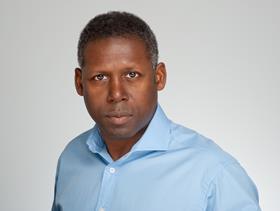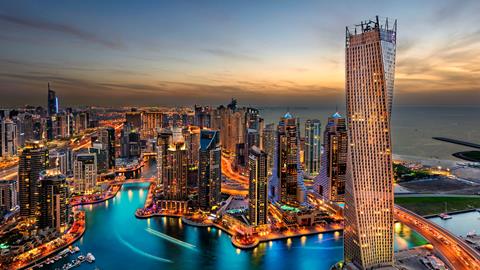Excello Law expanded our UK law firm into Dubai recently and one of the most significant decisions we made was to operate as a mainland firm rather than setting up in a free zone.

With clients increasingly operating across borders, an international footprint allows UK law firms to offer a seamless service. The UAE – and Dubai in particular – was a natural choice for us as we embarked on our international expansion.
Dubai offers UK law firms a wide range of opportunities if they are seeking growth. The city’s strategic position, economic growth, and legal market demand are all in its favour. It is a major hub for financial services, fintech, and technology, with a favourable tax environment. All of this and Dubai’s role as a key business hub in the region have led to increased demand for corporate and tax-related legal services. By setting up in Dubai, UK law firms can position themselves to capitalise on these opportunities while expanding their global reach.
UK businesses setting up in Dubai have the choice of setting up in a free zone or as a mainland firm. Dubai’s free zones are a popular option for UK businesses expanding into the UAE, including many law firms. Free zones – such as the DIFC – offer a tax free operating environment and allow 100% international ownership. The free zones also offer simplified customs processes and a fast set up process.
However, for Excello Law the benefits of operating as a mainland firm fitted our approach and ambitions for growth better. This choice reflects the strategic opportunities available in Dubai’s dynamic onshore legal market and positions us to offer a broader range of services to clients.
There are a number of key considerations for law firms looking to expand into Dubai and the business case for focusing on onshore work.
Operating onshore enables law firms to represent clients in UAE onshore courts, which is a crucial service for businesses involved in disputes, civil cases, or regulatory matters. Only mainland-licensed firms can provide full legal representation in these courts, making them essential for clients who require local advocacy.
Dubai’s onshore economy is diverse and thriving, with significant activities in industries such as real estate, construction, hospitality, and local commerce. Onshore law firms are well-positioned to serve businesses, government entities, and individual clients who require direct legal assistance within the UAE.
While free zones like the DIFC mainly cater to financial services and multinational corporations, mainland firms have access to a broader range of sectors. They can provide legal services in areas such as construction, employment law, commercial disputes, and more, where local knowledge and expertise are critical.
Being onshore also allows law firms to connect with clients who operate both locally and regionally. Dubai acts as a gateway to the broader GCC (Gulf Cooperation Council) region, North Africa, and South Asia, offering firms opportunities in new markets and cross-border activities.
Establishing a presence on the mainland also provides law firms with greater flexibility for future growth and diversification. Unlike those limited to free zone operations, onshore firms can adapt to shifting market conditions, explore local opportunities, and secure a stronger position in Dubai’s dynamic economy.
While free zones offer attractive benefits, the flexibility and growth opportunities offered by the mainland align more closely with our long-term vision.
For UK law firms considering international expansion, Dubai’s dynamic legal market provides an ideal environment for growth, offering both the potential to diversify services and strengthen relationships in an increasingly interconnected world.
George Bisnought is Founder and CEO of Excello Law
































1 Reader's comment